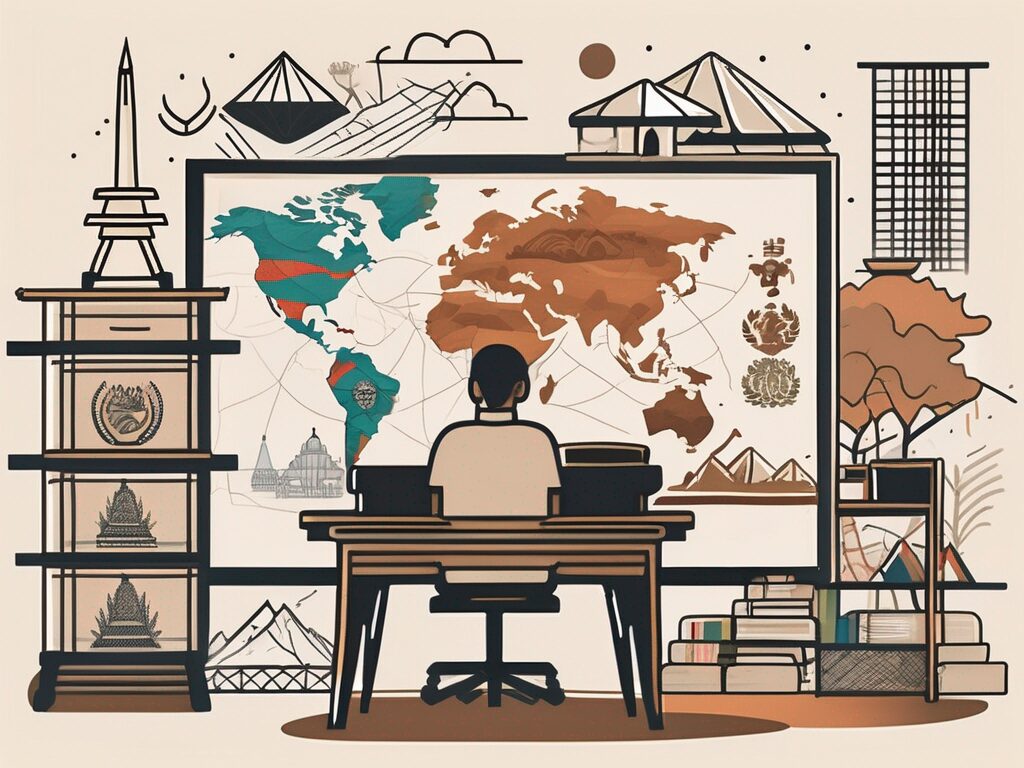Indonesia, an archipelago of over 17,000 islands, is a diverse and vibrant country that offers a wealth of opportunities for international teachers. However, like any overseas teaching assignment, it also presents its own unique set of challenges. From cultural differences to language barriers, these challenges can be daunting for those who are unprepared. In this comprehensive guide, we will explore some of the most common challenges faced by international teachers in Indonesia and provide practical advice on how to overcome them.
Cultural Differences
One of the first challenges that international teachers in Indonesia often face is adapting to the local culture. Indonesia is a country with a rich cultural heritage, and its customs and traditions can be quite different from those in Western countries. This cultural gap can sometimes lead to misunderstandings and miscommunications in the classroom.
For example, in Indonesian culture, it is considered disrespectful to directly criticise or confront someone. This can make it difficult for teachers who are used to a more direct approach to providing feedback. However, with patience and understanding, it is possible to adapt to these cultural norms and develop effective communication strategies.
Overcoming Cultural Differences
One of the best ways to overcome cultural differences is to take the time to learn about the local culture. This can involve reading books, attending cultural events, or even taking language classes. By gaining a deeper understanding of Indonesian culture, you will be better equipped to navigate the cultural landscape and build strong relationships with your students.
Another effective strategy is to seek advice from other international teachers who have experience teaching in Indonesia. They can provide valuable insights and practical tips on how to handle cultural differences in the classroom. Remember, it’s not about changing who you are, but about adapting your teaching style to fit the cultural context.
Language Barriers
Another common challenge for international teachers in Indonesia is the language barrier. While English is taught in schools, it is not the first language for many Indonesians. This can make communication in the classroom challenging, particularly when explaining complex concepts or giving instructions.
Furthermore, regional dialects and accents can vary significantly across the country, adding an additional layer of complexity. For instance, the Javanese dialect spoken in Jakarta can be quite different from the Balinese dialect spoken in Bali.
Overcoming Language Barriers
Learning the local language can be a huge asset for international teachers in Indonesia. Not only does it make communication easier, but it also shows respect for the local culture and can help to build rapport with students. There are many language schools and online resources available to help you learn Indonesian.
Another strategy is to use visual aids and hands-on activities in the classroom. These can help to overcome language barriers by providing a visual context for the material being taught. For example, using diagrams to explain scientific concepts or role-playing exercises to teach English vocabulary.
Teaching Resources
Access to teaching resources can also be a challenge for international teachers in Indonesia. While some international schools may have a wide range of resources available, others, particularly in rural areas, may have limited access to textbooks, technology, and other teaching materials.
This lack of resources can make lesson planning and delivery more challenging, as teachers may need to be more creative and resourceful in their approach. However, it can also provide an opportunity to develop innovative teaching strategies that engage students in new and exciting ways.
Overcoming Resource Challenges
One way to overcome resource challenges is to utilise online resources. There are numerous websites and online platforms that offer free or low-cost teaching resources, from lesson plans to interactive educational games. These can be a valuable tool for supplementing traditional teaching materials.
Another strategy is to collaborate with other teachers. Sharing resources and ideas can be a great way to maximise the available resources and develop innovative teaching strategies. Remember, teaching is not a solo endeavour, but a collaborative one.
Conclusion
Teaching in Indonesia can be a rewarding and enriching experience, but it also comes with its own set of challenges. By understanding these challenges and developing strategies to overcome them, international teachers can thrive in this diverse and vibrant country.
Whether it’s navigating cultural differences, overcoming language barriers, or finding creative ways to utilise limited resources, the key is to be adaptable, patient, and open to learning. With the right mindset and approach, these challenges can become opportunities for personal and professional growth.
Elevate Your Teaching Career in Indonesia with IPGCE
Ready to transform the challenges of teaching in Indonesia into milestones for your professional development? Join IPGCE, the UK’s #1 Teacher Training Course, and gain the qualifications you need to stand out in international schools. With our International Postgraduate Certificate in Education, you’ll not only increase your chances of securing interviews by 50% but also enhance your potential for career progression and salary growth. Connect with a global network of educators, deepen your understanding of international curricula, and pursue your professional development without compromising your current commitments through our flexible online study options. Don’t let inadequate credentials or isolation limit your teaching journey. Join IPGCE now and unlock a world of opportunities in Indonesia and beyond.

